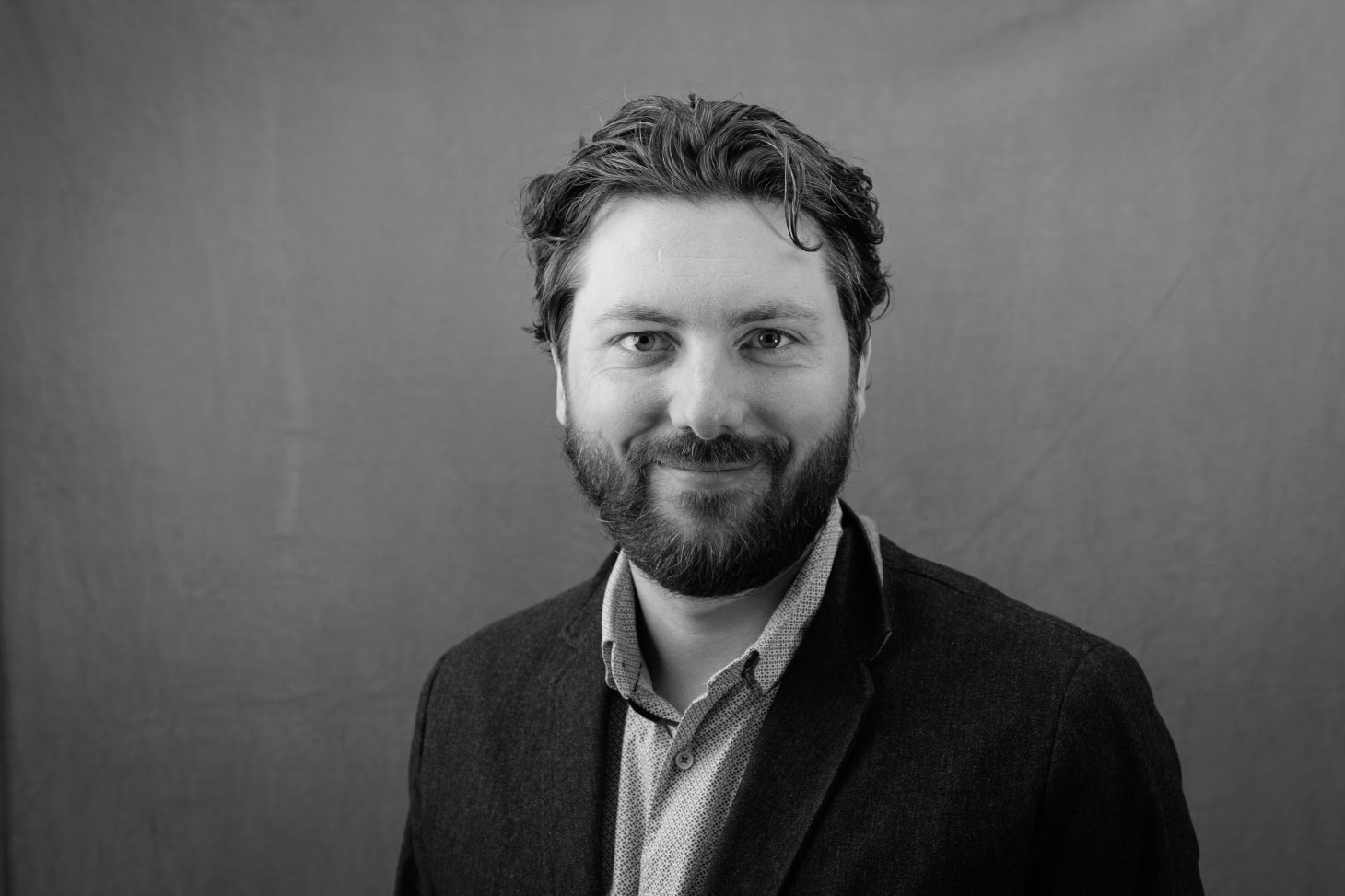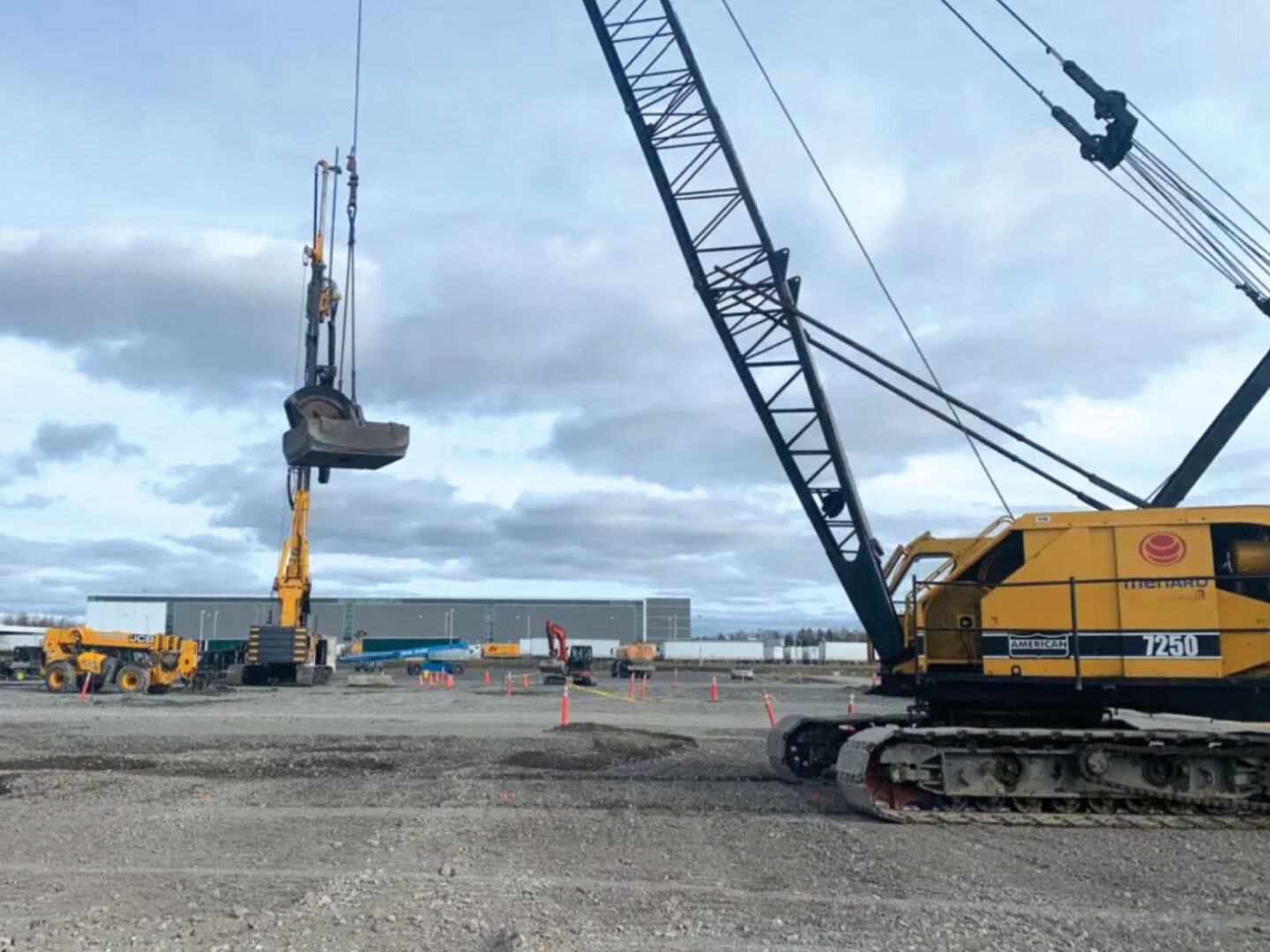
In his role as design manager at the head office of Menard Canada in Montreal – a position he has held for two years – Benoit St-Onge oversees all design for ground improvement solutions in Quebec.
“I’ve been working at Menard for seven years,” said St-Onge. “I started as a project co-ordinator for two years, mainly working onsite. Working as a site engineer early in my career helped me to have a better sense of constructability and to develop a better understanding of the challenges a site team faces. After that, I became a project manager/designer for three years.”
Born and raised in Gatineau, Que., St-Onge earned a degree in civil engineering at École Polytechnique de Montreal. He then studied abroad in France, at INSA-Toulouse from 2010 to 2014.
“My interest in geotechnical engineering grew (in France),” he said. “After that, I did an internship at the Credeau (a water treatment laboratory at Polytechnique of Montreal). During my internship at Credeau, my supervisor had a partnership with another teacher on a new soil treatment called MICP (Microbially Induced Calcite Precipitation). When I discovered the subject, I decided to do my master thesis on it. I did a (master of science in administration) at École Polytechnique de Montreal from 2014 to 2016, on the MICP soil treatment.”
St-Onge knew during his studies that he didn’t want to study classic geotechnical engineering. Instead, he preferred to look into alternative and innovative solutions with the goal of having a more tailor-suited and cost-effective approach with a smaller carbon footprint.
“Research and development are happening outside of Canada, and those initiatives can be very beneficial to our market.”
Benoit St-Onge, Menard Canada
Career challenges
When asked what some of the challenges are that he has overcome so far in his career, St-Onge says the main one is inertia.
“Ground improvement is still new in the deep foundation market. A lot of clients are unreceptive to use new solutions. It takes a lot of energy to change the practices in the deep foundation industry, but it’s worth it,” he said.
He says that ground improvement solutions are not limited to one type of project. “Currently, I’m more involved in the industrial and warehouse market. There’s a great demand for those types of buildings and markets in Quebec. We are involved in a project that has liquefaction, excessive settlement or bearing capacity issues. A big part of the fun I have in this project comes from the fact that I work on a difficult site.”
As for the types of projects he looks forward to working on, St-Onge says there is a great deal of discussion about the energy sector in Quebec.
“These projects are typically more technical and there’s a lot of challenges to tackle. It’s exciting to see all the investment and future possibilities in the Quebec market,” he said.
Maintaining relationships
When it comes to building and maintaining strong relationships with clients and customers in the deep foundations sector, St-Onge emphasizes the need to be honest and pragmatic.
“Transparency is the key to success,” he said. “Deep foundations and geotechnical engineering depend on many parameters and sometimes involve uncertainties. It’s crucial to be clear about the limitations of your design, where the uncertainties lie, what the probability of them happening is and where there are extra costs.”
He says that to be successful in this field, one needs to be curious and attentive to what is happening technically worldwide. “The Canadian market is still a small market and there’s not a lot of new initiative growing in our market. Research and development are happening outside of Canada, and those initiatives can be very beneficial to our market,” he said.

The future
When asked what he foresees for the construction industry in general, St-Onge says the industry evolves around two main subjects: the carbon footprint, and the usage of big data and artificial intelligence (AI) in the field.
“[The] deep foundation industry is no different. A lot of research is done on alternative materials, refining design with advanced numerical analysis, and reducing uncertainties with data and AI,” he said.
As for what his future career plans are, he says it is difficult to project into the future. “My focus has been to develop the ground improvement industry in Quebec. There’s a lot of techniques that are not yet implemented into our market and I would love the be an actor in this diversification,” he said.
St-Onge is also a member of the Canadian Geotechnical Society. “I do a lot of presentations to professionals and talk about ground improvement. I’ve recently been asked to give a lecture on ground improvement in universities,” St-Onge said.
Away from work, he enjoys outdoor activities. “I love to go away on multiday treks with my girlfriend and enjoy the big outdoors we have in Canada,” he said.
Spoken like a true Canadian.